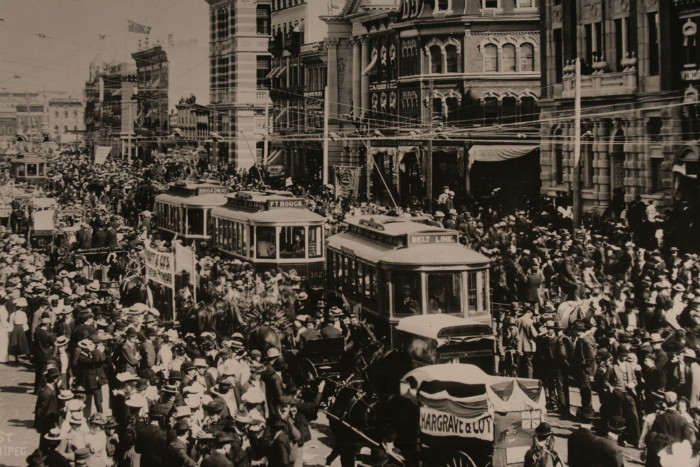By Zach Fleisher
During the past year, I served on the executive committee of the University of Winnipeg Students Association. Along with other student unions in the city, the major project we collaborated on was a universal bus pass for post-secondary students in Winnipeg. Under the terms, every student would pay a mandatory fee that was considerably less than regular market value. Programs such as these have boosted ridership across the country, in both the short and long term, and have proved to be extremely effective in alleviating traffic problems like congestion.
[related_content slugs=”winnipeg-universities-to-implement-u-pass” description=”More about the U-Pass” position=”right”]
This was proposed through both a small city subsidy and collective purchasing though economies of scale. In return for this investment, all students at participating institutions would be eligible for free service on Winnipeg Transit routes throughout the school year. This proposal has the potential to change our mindset as an automobile-focused city while also using a small city subsidy to properly utilize previous transit investments, like the Rapid Transit Corridor.
The associations of both the University of Winnipeg and the University of Manitoba approached our membership with this idea as a fall term referendum question. After the question passed at both institutions, we moved forward to begin negotiations with various levels of government and made repeated attempts to meet with every member of City Council in order to effectively educate them on the issue.
After months of lobbying and discussions with Winnipeg Transit and members of government, our proposal came to the Public Works Committee on April 30th, where it passed and was referred to the budget process. One concern expressed by Winnipeg Transit was that they lacked the sufficient resources to properly transport the anticipated increase in students taking the bus to the University of Manitoba, estimating that they would need additional buses to accomplish this.
One can imagine my surprise in the past few weeks when our city’s unfinished bus way and rapid transit system failed to properly transport thousands of Blue Bombers fans to Investors Group Field, conveniently located at the University of Manitoba. When the initial fleet of 75 Winnipeg Transit buses were unable to adequately get fans to the stadium for a pre-season game on time, the football club and Winnipeg Transit announced that 150 buses would be available as part of the new game day transportation strategy.
Is the city and Winnipeg Transit really accommodating Blue Bomber fans for 9 evenings a year over the transportation needs for students? Are inebriated football fans suddenly more important than students who have less disposable income to spend on transportation? Why not try and reach a middle ground and satisfy the needs of both groups.
The city and Winnipeg Transit have an opportunity to raise ridership on a daily basis and many students who use these passes become accustomed to public transit and continue to use it after graduation. In Edmonton, a city of similar size and demographics to Winnipeg, 94 per cent of students reported using transit services at least once after the implementation of a U-Pass program.
The City of Winnipeg, Winnipeg Transit and the Province of Manitoba have a chance to both properly justify the existing investment on rapid transit and increase ridership on the route to justify its completion. In turn, the completion of the route will help improve traffic for fans and students. To borrow a football metaphor here, the powers that be have an opportunity to score an easy touchdown here; lets just hope that they don’t fumble on the goal line.
—
Zach Fleisher is a local politics and transit nerd. His opinions, sadly, are his own.
